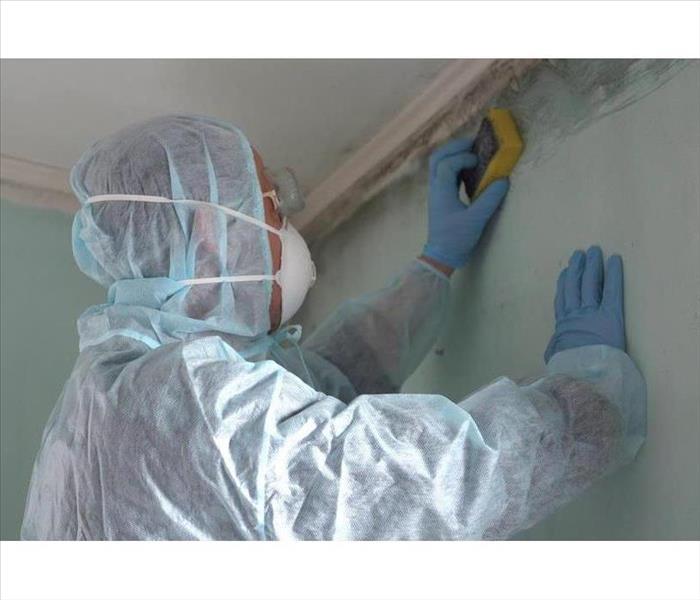3 Questions You Might Have About Mildew
3/23/2020 (Permalink)
Fungi spores are everywhere and can grow and develop by feeding on available materials. As you report mold growth resulting from a water-based incident or high humidity to a water damage remediation company, you might think about plant mildew as well. While people often mention these organisms together, they are not interchangeable. If you are unaware of mildew, you might have the following questions about it.
What Is Mildew?
Mildew is a specific type of mold that is also known as an obligate biotrophic pathogen. This term means that it is an organism that grows and feeds exclusively on living matter such as plants and crops. Mildew resembles a white or grey powder and it can be found on the plant's dead or weakened part. This indicates that the fungus has a parasitic connection to the plant.
How Do I Get Rid of It?
If you have garden or house plants that are contaminated with plant mildew, there are some steps you must take. Wear protective clothes and gear such as gloves, googles and a face mask when handling the plant.
- Remove the plant and place it outside
- Carefully wash away noticeable mildew from leaves
- Cut infected sections from the rest of the plant
- Maintain the plant outdoors and with sunlight access
Once the plant is safe, you can prevent mildew growth from taking place again. Prevent humidity from overwhelming it, disinfect your gardening tools and use specialized fungicide to ensure the plants in your home thrive.
Is It Different from Mold?
The biggest difference between mildew and mold is that the former is a type of mold that specifically grows on plants, rather than nonliving materials or surfaces. Professional remediators in Indian Hill, OH, would use similar methods to remove both. However, if they find no difference between the two, it is a telling sign that they are not professional and employ questionable judgment.
Despite their close association, plant mildew and mold create a different impact on objects and organisms. Investigate mildew and its distinctions to prevent it from growing at home.






 24/7 Emergency Service
24/7 Emergency Service
